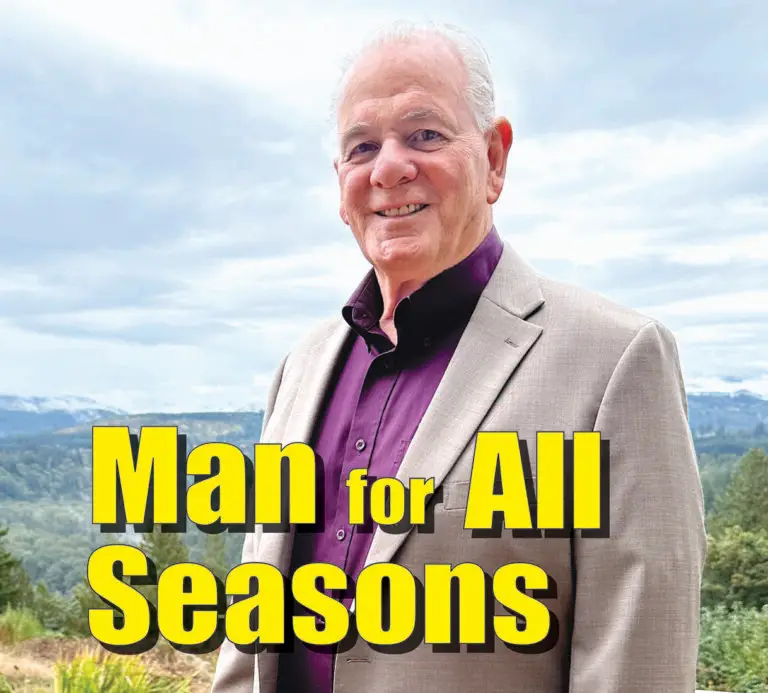Drake Snodgrass, founder of Drake’s 7 Dees Garden and Landscaping, has built more than gardens—he has cultivated a legacy of beauty, integrity, and faith that has carried him around the world promoting
peace and reconciliation
Morning sunlight filters through glass and leaves, the steady rhythm of another workday beginning at Drake’s 7 Dees. For more than fifty years, Drake Snodgrass has lived by the seasons—planting, pruning, rebuilding, and renewing. Hanging baskets of philodendrons sway gently above tables crowded with young ferns, pothos, and flowering shrubs. Among them moves Drake Snodgrass, one hand brushing a leaf here, adjusting a plant tag there. He pauses to talk with an employee, his eyes bright with the same quiet satisfaction that has marked his half-century in the business.
“This company has always been about doing the right thing,” he says, his voice calm but firm, the cadence of someone who believes that principle outlasts circumstance. It’s one of the three rules he’s repeated for decades, words that have become part of the company’s culture: Always do the right thing. Never tell a lie. Be a good team member.
The Seven D’s
Like a garden, every story starts with a seed. For Drake’s 7 Dees, that seed was planted long before Drake was born.
In 1927, his maternal grandparents, Bernard and Florence Esch, began one of Portland’s earliest rhododendron nurseries, importing rooted cuttings from England and helping to bring the Northwest’s lush, flower-filled landscape to life. “They were pioneers of Portland gardening,” Drake said. “If you drive through Eastmoreland or the old West Hills neighborhoods and see a twelve-foot rhody that’s older than you are, chances are it came from their nursery.”
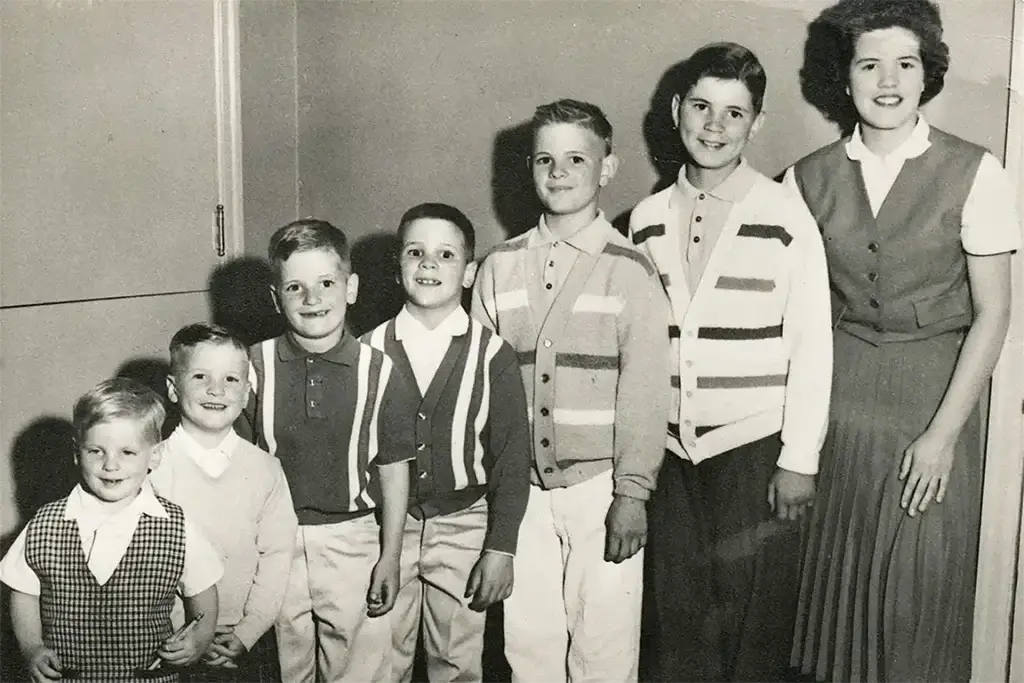
His father, Robert Snodgrass, came home to Portland from World War II in 1946 after serving with the U.S. Army’s ski patrol in Europe. He married Bernard and Florence’s daughter Merle in 1947. Declining an offer to relocate east for a retail-management career, he followed that family tradition of working the soil. In 1956, Robert and Merle bought two acres on Southeast 60th and Powell and opened a small garden center—one of the first of its kind in Portland.
Together, Robert and Merle had seven children — and, by coincidence, every name began with the letter D. “Dave, Dennis, Daryle, Dan, Drew, Dean and Drake,” Drake laughed. “It wasn’t planned. It just happened that way. Then Mom looked at Dad and said, ‘Well, I guess we’d better call it Seven Dees.’”
The name stuck. So did the work ethic. The kids learned to weed, water, load customer cars, and haul flats of annuals long before they were old enough to drive. The nursery wasn’t glamorous—just a few wooden tables, some shade cloth, and the endless task of keeping things alive—but it taught them what honest labor and service looked like.
When Drake was 13, tragedy struck: his mother passed away unexpectedly, leaving their father to raise seven children between the ages of 6 and 18 while keeping food on the table and the business afloat. “We kind of grew up ourselves,” Drake said quietly. “Dad was gone a lot, working to keep things going, but he gave us the example—keep your head down and provide. That stuck with me.”
Drake attended Parkrose High School, then studied horticulture at Oregon State University. There, he met a young education major named Lynn—his future wife—before leaving school to join the National Guard during the Vietnam era. In 1974, when Drake was just 24 years old, he and his older brother Dennis stepped forward to buy the family business. Each brother bought one of the family’s garden center stores.
Building on a legacy
Half a century later, the enterprises they bought have become two of Oregon’s most respected design-build landscape firms. Today, the two businesses combined have more than four hundred employees.
Today, the employees of the two separate businesses include architects, designers, craftspeople, and retail staff.
Drake’s 7 Dees continues to grow, shaping gardens that are as personal as fingerprints. Yet when Drake speaks of success, he seldom mentions numbers or awards. He talks about people: families who “spend more time out in the garden now than in the house,” and young designers discovering that shaping beauty from soil can be a calling, not just a job.
The nursery hums with activity—trailers loading out front, sprinklers ticking in the distance—but Drake still finds time to walk the aisles, to listen, to teach. The pace has changed, but the purpose hasn’t. The businesses he and his brother re-invigorated stands today as both livelihood and legacy—a living reflection of its founder’s conviction that good work, done honestly, always takes root.
Through half a century of growth, change, and challenge, his compass has remained true. Outside, sunlight filters through the conifers, and customers wander the paths, pausing to admire a Japanese maple’s crimson leaves. Drake smiles as he watches. For him, it’s never been only about plants. It’s about cultivating life, integrity, and peace—one garden, and one generation, at a time.
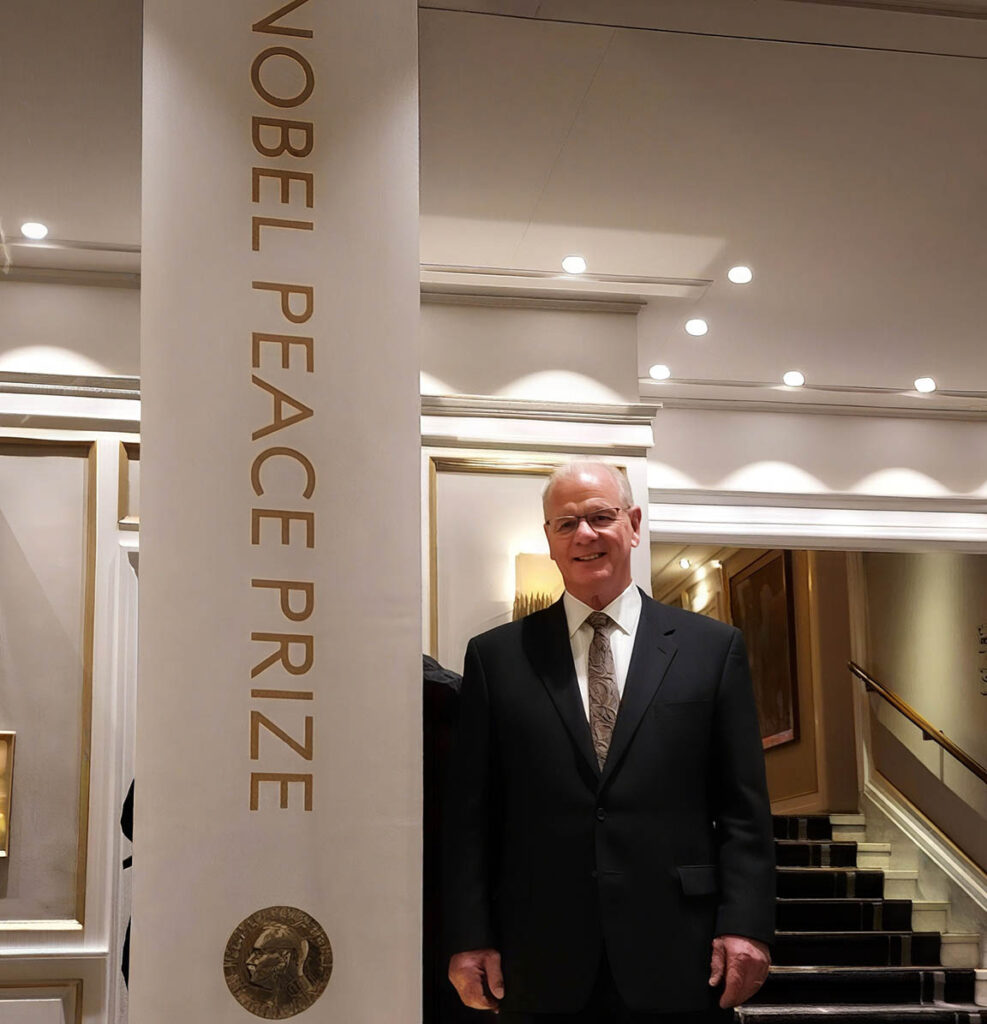
“We believed in what Dad started,” Drake said. “We just had to build on it.” What began as a single family garden center company on Powell Boulevard would, over the next five decades, grow into two of Oregon’s most respected landscaping and garden center companies — the 7 Dees name still carrying the humor and heart of a family story that began with seven kids and a coincidence.
Building through Integrity
When Drake and Dennis took over the family nursery, they didn’t inherit wealth—they inherited responsibility that included debt. “We told Dad we’d take it over and pay everyone back,” Drake recalled. “So we went to each vendor—every grower, every supplier—and said, ‘We’ll pay you back over ten years at four percent interest.’ They all said yes.”
What they built from that simple act of honesty became the foundation for five decades of growth. “We didn’t have any magic formula,” Drake said. “We just did what we said we’d do.” Integrity became the climate of his company—the weather that never changed, no matter how the market did.
Dennis and Drake each spun off a new company. In order to keep the companies distinct, Drake renamed his now solo venture, Drake’s 7 Dees.
From the beginning, Drake’s 7 Dees worked to create a distinct brand built on integrity, experience, and expertise. Drake brought an architect’s eye to outdoor living spaces, combining form, function, and a deep understanding of plants.
Success, for Drake, was never defined by scale—it was measured in trust. His three guiding principles: “Always do the right thing. Never tell a lie. Be a good team member,” became company commitments.
“Everyone here has permission to do the right thing,” Drake told interviewer Al Nodarse during the Faithful Friends Hard Hat Tour. “No matter what it costs, you tell the truth. You make it right. That’s how we do business.”
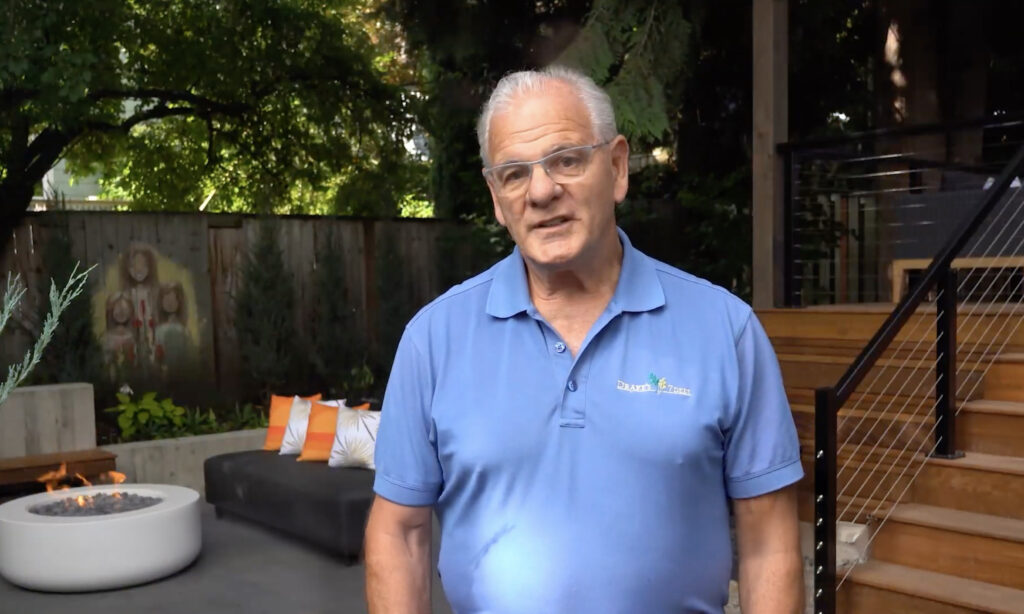
(Still from YouTube video)
Under his leadership, Drake’s 7 Dees grew into a regional powerhouse known for its landscaping craftsmanship and reliability as much as for its creativity. To Drake, the real measure of success wasn’t the size of the payroll or the number of awards; it was the expression of joy on a client’s face when they saw their completed garden. “When someone tells us, ‘We’ve spent more time out here than in the house,’ that’s when we know we’ve done our job,” he said.
In a business defined by seasons, Drake’s character of integrity became the constant. Today, even as the company continues to grow with new technologies and design tools, the culture Drake stamped on it is still the guiding principle—a moral compass, passed quietly from founder to foreman to new hire.
Gardens to Global Peace
For Drake Snodgrass, the rhythm of planting and peace were not so different—both required patience, humility, and hope. What began as a love for gardens grew into a surprising mission that would eventually take him to places he wouldn’t have dreamed of, from Portland to London, Nagasaki, Tokyo, and Oslo—linking soil and soul in ways few could have imagined. Drake Snodgrass became an ambassador for world peace.
For more than a decade, Drake served on the Board of Trustees of the Portland Japanese Garden, one of the most celebrated gardens of its kind outside Japan. “My dad was actually involved when the Garden was built back in the ’60s,” he recalled. “He helped plant the wisteria that still grows over the arbor near the Heavenly Falls area. It was meant to be a symbol of reconciliation after the war.”
Steve Bloom, is the retired CEO of the Portland Japanese Garden. He said, “For more than a decade, Drake Snodgrass was a steady, guiding force on the Board of Portland Japanese Garden. What truly sets him apart is his humanity. Drake is a good-hearted man whose first priority is always people—family, friends, and community. Drake is a leader of great integrity. He is a man whose example reminds us that the most beautiful gardens are those cultivated in the heart.”
Lisa Christy is the current Executive Director of the Portland Japanese Garden and Japan Institute. She echoes Bloom’s sentiments about Snodgrass. She said, “Over the years, Drake has helped shape Portland Japanese Garden through seasons of growth and change. He truly is a man for all seasons: constant, generous, and deeply rooted in his values. In every role he held, including that of Board President, Drake led with quiet strength and grace. His care for this Garden and its mission reminds us that leadership, at its best, is an act of service. I’m proud to call him a friend.”
In 2022, as president of the Garden’s Board of Trustees, Drake helped found its sister organization, the Japan Institute of Portland Japanese Garden, designed to promote Japanese art, Japanese Garden Training, and cultural exchange. Through the Institute, he helped organize a series of Peace Symposiums held in Tokyo, London, and South Africa—each using the shared language of gardens to bridge divided cultures.
“The idea was that a garden is common ground,” Drake said. “We can always find things to disagree about, but a garden is something we all can appreciate. It’s a space where people stop talking past each other and start seeing beauty together.”
That belief became the inspiration behind one of his most moving projects: the creation of Peace Lanterns presented to the cities of Hiroshima, Nagasaki, and Tokyo on the 75th anniversary of the end of World War II. Chiseled from granite, each lantern bore the inscription “Casting the Light of Everlasting Peace.”
“They cost $25,000 apiece,” he said. “Each weighed about two tons. We had them made in Japan, so at least we didn’t have to ship them far. But it was worth it.” The lanterns were presented to city officials and survivors of the atomic bombings, some of whom Drake met personally. “One woman told me she’d been a child when the bomb exploded. Her mother grabbed her hand and said, ‘Run.’ She remembered stopping to look at the dead bodies because she couldn’t understand what had happened. Hearing that firsthand changes you.”
That spirit of reconciliation also led to another unexpected partnership, this time with the Nobel Peace Center in Oslo, Norway, where Drake and a delegation from Portland shared the Garden’s international peace work. They discussed how gardens can serve as neutral spaces for dialogue and cultural healing. “We were just trying to share what we’d learned,” Drake said, “but it was amazing to be part of that.”
While in Oslo, Drake met the Japanese ambassador to Norway and members of the Norwegian royal family. Drake also met Malala Yousafzai, the Pakistani activist who survived an assassination attempt at age fifteen. “She told me her story—how a man boarded the bus, asked who she was, and then shot her,” Drake said quietly. “She survived, and now she speaks all over the world. To sit across from someone like that humbles you,” he added.
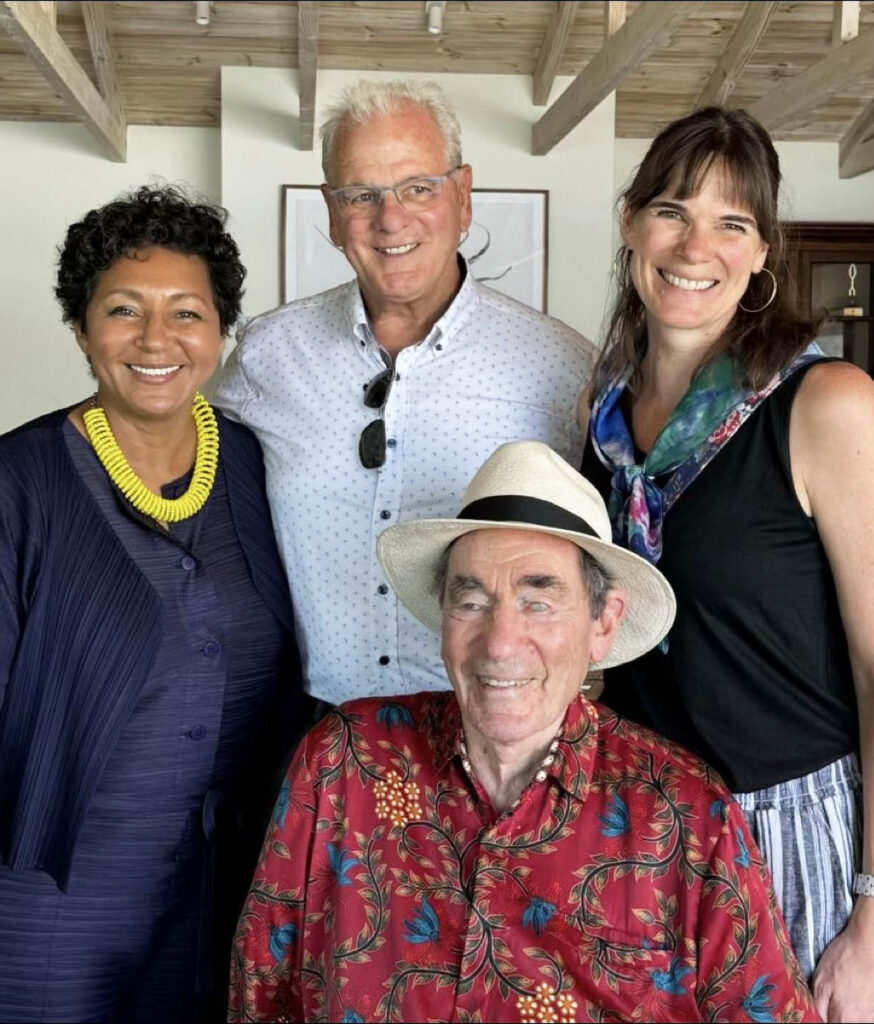
From there, Drake and his team carried the Peace Symposium series to South Africa, partnering with leaders and activists who had fought against apartheid. They met with Albie Sachs, one of the drafters of the post-apartheid constitution, who lost an arm and an eye in a car bombing. “You meet people like that,” Drake said, “and you realize they literally risked their lives for what they believed in.”
Across continents and cultures, his faith in renewal never wavered. Wherever he went, Drake planted the same message—that peace, like a garden, has its seasons, and it grows only with care.
The deepest root
For all his work with plants, it was faith that became Drake’s deepest root.
In the early 1990s, Drake was already a respected businessman and civic leader, but faith, as he put it, “wasn’t something I really had nailed down.” Then he met Pastor Bob Maddox of Good Shepherd Community Church. “Bob came up to me after a service one Sunday and said, ‘Hey, I’d like to have lunch.’ I told him, ‘Just so you know, I’m at best an agnostic.’ He said, ‘That’s fine. Let’s have lunch anyway.’ And we did—for the next eight or nine years, every Friday.”
Those lunches changed his life. “For two years, we just went back and forth—me asking hard questions, him never pushing, just listening and sharing. Finally, one day, it just made sense. I accepted Christ. That was 1992.”
That quiet conversion, unadvertised but sincere, became a turning point. “It reframed how I saw everything—business, marriage, giving, how you treat people. It all lined up.” Faith didn’t just take root in his life—it became the soil that nourished everything else.
Drawing on a Franklin Institute seminar he’d taken in his thirties, he wrote down what he called his core values—guiding principles he would live by. Among them: to remain married to wife Lynn his entire life; to be generous with what he had, help people and give to the church; maintaining his physical health; teaching his children to have faith in God and live it out; to be a business leader who cares for people more than profit.
He has kept those written goals for decades, returning to them often.
Using his gifts
Faith also inspired his deep sense of stewardship. “If God’s given you something—talent, money, time—you don’t hoard it. You use it.” That belief fueled his extensive community involvement over the years. He served as president of the Gresham Area Chamber of Commerce, co-chair of the Mount Hood Jazz Festival, board president of the Good News Community Health Center, and a longtime member of The Salvation Army’s Portland Metro Advisory Board, helping lead efforts to build the organization’s East County facility.
Lorrie Davis is the Donor Relations Director with the Cascade Division of the Salvation Army and has worked with Drake on many projects. She said, “I have known Drake for over 25 years through his leadership on The Salvation Army Advisory Board. His leadership has been an integral part of our ability to serve those in need. His genuine love and concern for our community are evident in all he does.” She added, “He is a hands-on leader who shows up and gets his hands dirty to serve his community. He is the real deal.”
Drake views such work as a calling. “We all have gifts,” he said. “Mine happen to be leadership and organization. The question is—what do you do with them?”
That conviction reached beyond local volunteer service. In the early 2000s, he led a series of Christian business teams to China. “We went there to teach business ethics and teamwork at universities in Qingdao,” he said. “We’d hold seminars on American business practices—then invite people back the next night to talk about where those ethics come from. We could share that they come from the Bible, from faith. A few of them decided they wanted to learn more about Christ. It was amazing.”
Later, Drake was part of a five member short-term mission team to India organized by Bob Maddox helping to mentor young business and ministry leaders.
Whether he was sitting with a mayor in Japan or a student in China, Drake’s approach was the same—listen first, lead by example, and leave a touch of kindness behind.
Some people measure success in harvests; Drake measured it in the seeds he left behind. Over time, his professional success and spiritual commitment became inseparable. The man who built gardens for others had cultivated something deeper within himself—a faith that had grown, season by season, into quiet strength.
Drake and Lynn
If Drake’s life is a garden, Lynn has been its constant companion through every season—planting, pruning, and persevering beside him.
The two met at Oregon State University in the early 1970s—Drake studying horticulture, Lynn majoring in education. They married in 1974, the same year Drake and his brother bought the struggling family nursery. “We started a marriage and a business at the same time,” Drake said with a wry grin. “We didn’t know which one would survive first.” Both did—and thrived.
Their marriage became a partnership in every sense, grounded in shared faith, humor, and endurance. While Drake built a company from soil and sweat, Lynn built a career in leadership and public service that would make Oregon history. She went on to become the first female Speaker of the Oregon House of Representatives, later serving as CEO of the Gresham Area Chamber of Commerce, lending her leadership talents to East County’s business community.
But ask Drake about Lynn’s accomplishments and he’s quick to deflect the attention back to her character. “Lynn’s not just capable—she’s steady,” he said once. “She’s the most disciplined person I know. She’s my balance.”
Their marriage, by both their accounts, has weathered everything—business pressures, travel, health challenges, and the hectic pace of public life. Yet what held it together was not ease but commitment. As Drake told the story in one of his interviews, “We were in a rough patch once, and I told Lynn, ‘I just want you to know—I’m never going to not be married to you.’ She said that changed everything. It was a game-changer for both of us. That’s what commitment looks like.”
Lynn returns her husband’s praise. “In our 55 years together as a couple, Drake has gotten better and better. More patient, more fun, more protective, more supportive, more godly, more loving, everything. He perseveres no matter what is thrown his way. I am so lucky he married me,” she said.
Together, the Snodgrasses have raised two daughters, Jenne and Megan, who reflect the same mixture of grit and grace that defines their parents. Both Jenne and Megan have been involved in family and community life, and Drake was proud when they both joined him on a peace delegation to Cape Town.
Lynn said, “Drake was a great dad. He supported me as a mom and was a role model for our daughters. But Drake is a great grandpa. He changed more diapers as a grandpa than he did as a father. All joking aside, our daughters are blessed by the character of the man who has raised them and our grandkids will never be let down by the role model he is in their lives.”
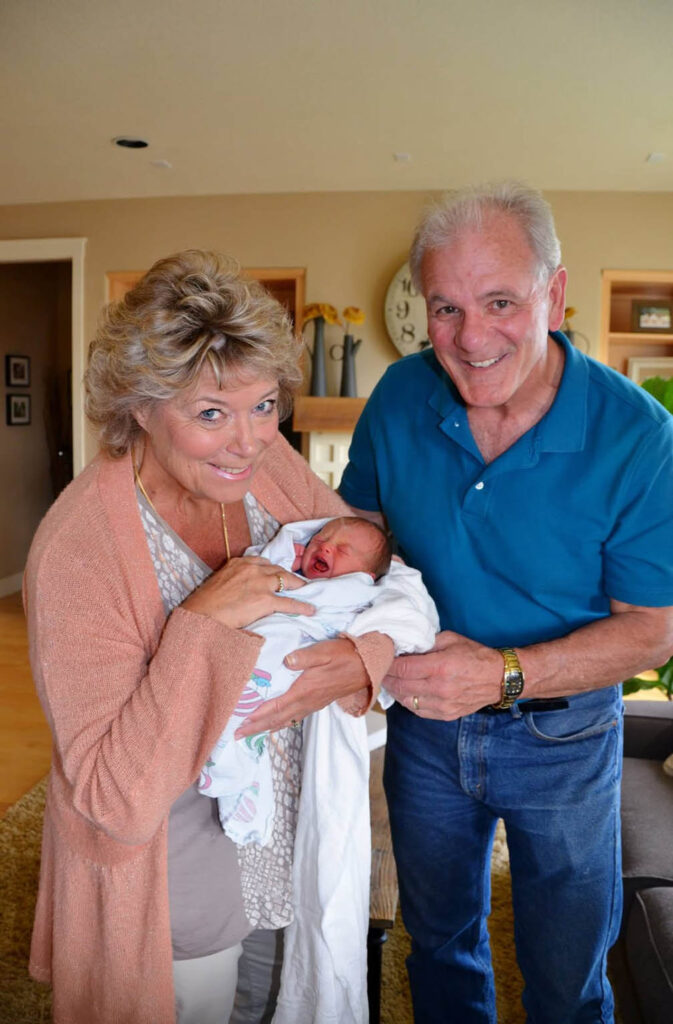
In public, Drake and Lynn have long been a fixture at community events, known not only for their leadership but for their quiet generosity. They’ve given of their time, their resources, and their influence, always with an eye toward helping others succeed.
For Drake, the partnership has been nothing short of providential. “I’ve had a lot of good breaks in my life,” he said, “but marrying Lynn was the best one.”
Generosity and Purpose
Through each season of his life—building, giving, leading—Drake has returned to the same truth: the harvest belongs to those who keep sowing.
If there is a single thread running through Drake Snodgrass’s life, it is generosity—of spirit, of time, of purpose. Whether building gardens, mentoring young leaders, or serving on civic boards, Drake has always seemed less interested in recognition than in results. “If God’s given you something—talent, money, or opportunity—you don’t hold it,” he reiterated. “You use it.”
That conviction shaped every corner of his life. In business, he made it a point to invest in people, not just payrolls. In community work, he looked for ways to bring others along. And in faith, he measured devotion not by words, but by action.
Drake’s handwritten list of core values, drafted decades ago after that Franklin Institute seminar, reads like a roadmap for how he lived. “Writing them down changed my life,” he said. “It wasn’t ‘someday I will be generous.’ It was ‘I am generous.’ It’s not ‘I’ll try to take care of my marriage.’ It’s ‘I am committed.’ Writing it in the present tense meant I was already living it.”
Those commitments carried him through challenges few outsiders ever saw. Twice, he and Lynn mortgaged their home to keep the company afloat during economic downturns. “Most people would have closed the doors,” Drake said, “but it wasn’t an option. This business was part of my family. You just don’t walk away from family.”
What he built instead was a culture of integrity—one that shaped hundreds of employees and thousands of customers. “I’ve always believed you do what’s right, even when no one’s looking,” he said. “If you do that long enough, you don’t have to advertise who you are. People just know.”
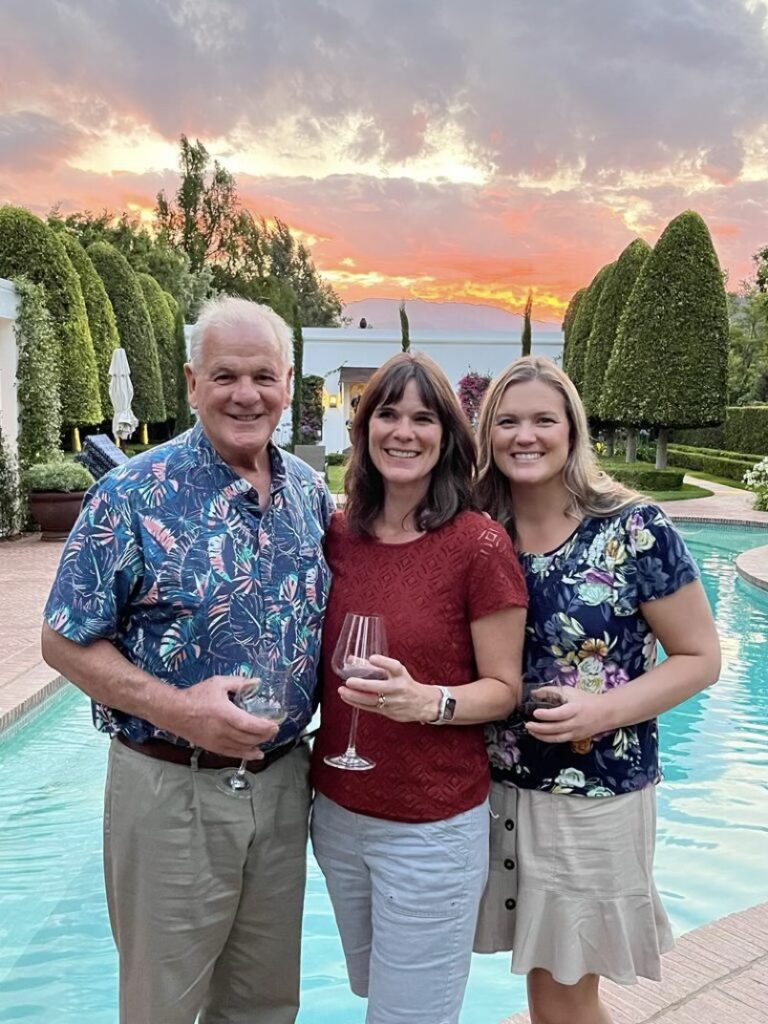
Beyond his company, Drake’s generosity found quiet expression in his support for churches, charities, and individuals in need. He helped fund scholarships, youth programs, and community health initiatives—rarely seeking credit. “He’s one of those people who gives because it’s right, not because it’s noticed,” one colleague said.
Even in his international work—the Peace Symposiums, the Japan Institute, the Nobel connection—Drake’s focus remained local at heart. “World peace sounds big,” he said, “but it starts with small things. Listening. Helping. Doing your part right where you are.”
That same grounded philosophy has guided his approach to aging. While others his age might have stepped away from work, Drake continues mentoring, attending design reviews, and supporting the next generation of leadership at Drake’s 7 Dees. “I’m not ready to stop,” he said with a grin. “You don’t retire from purpose.”
Perhaps his greatest satisfaction has been seeing his company—and the people within it—carry his principles forward. Drake’s 7 Dees is more than a workplace; it’s a family built on trust. The words he repeats to his employees sum up what Drake spent a lifetime proving true: “Do the right thing. Never lie. Be humble and hungry.”
In a world that prizes reinvention, Drake’s gift has been constancy. He is a man for all seasons—rooted in principle, generous in growth, and faithful to the work of his hands.
Life has its seasons
Every garden has its seasons—growth, rest, renewal. So does a life well-lived. To those who know him, Drake Snodgrass has always been that kind of story—a life measured not by speed but by depth, not by noise but by growth.
At Drake’s 7 Dees, the seasons pass in slow choreography—trucks loading in the morning mist, the chatter of customers on bright weekends, the rhythm of sprinklers over a thousand shades of green. Drake still walks in the nursery, greeting staff and customers alike, offering a word of advice or a memory of how a certain maple looked when it was first planted. He now oversees others lead the work he began, ready to see the next season unfold.
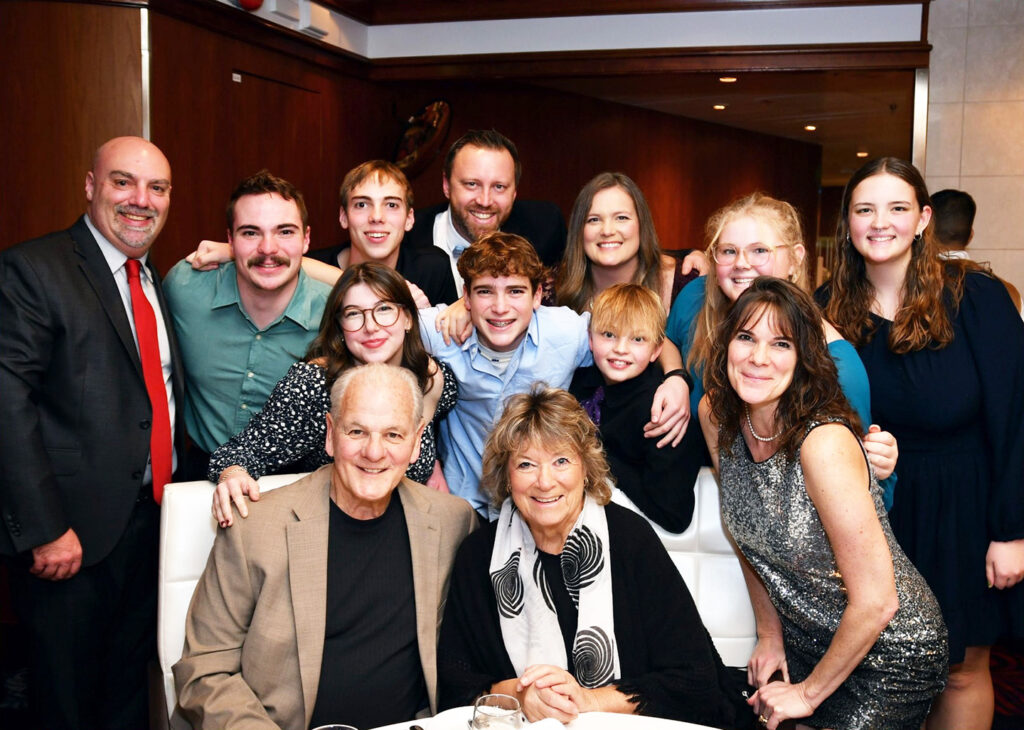
“The older you get,” he said recently, “the more you realize how much of life is stewardship—you take care of what’s been given to you.”
That sense of stewardship has guided everything—from the business he bought and built with his brother, to the marriage he tended with Lynn, to the global friendships he helped nurture through gardens of peace. His work with the Portland Japanese Garden and the Japan Institute, his connections with the Nobel Peace Center, his decades of civic service—all flow from the same conviction: that beauty, honesty, and humility are never wasted.
A garden is a kind of promise—you plant what you may never see fully bloom, trusting that someone else will. The same could be said of Drake Snodgrass’s life. The seeds he has planted in people and communities in the local community and all over the world will keep growing long after he has left the field.
There’s a moment near closing time when the nursery settles into evening. The light fades, the air cools, and the scent of damp soil rises. Somewhere in the distance, a pair of employees laugh as they close up the shop. Drake pauses and looks out over the garden of life, of plants and people, he helped bring into being and continues to nurture and support.
In that moment the symmetry is clear — here is a man whose life has been one long act of cultivation. From debt to prosperity, from skepticism to faith, from local business to global goodwill, he has spent a lifetime turning raw material into beauty and purpose.
Steadfast in purpose, generous in heart, and faithful in every season—Drake Snodgrass remains what he has always been: A man for all seasons. HVN

